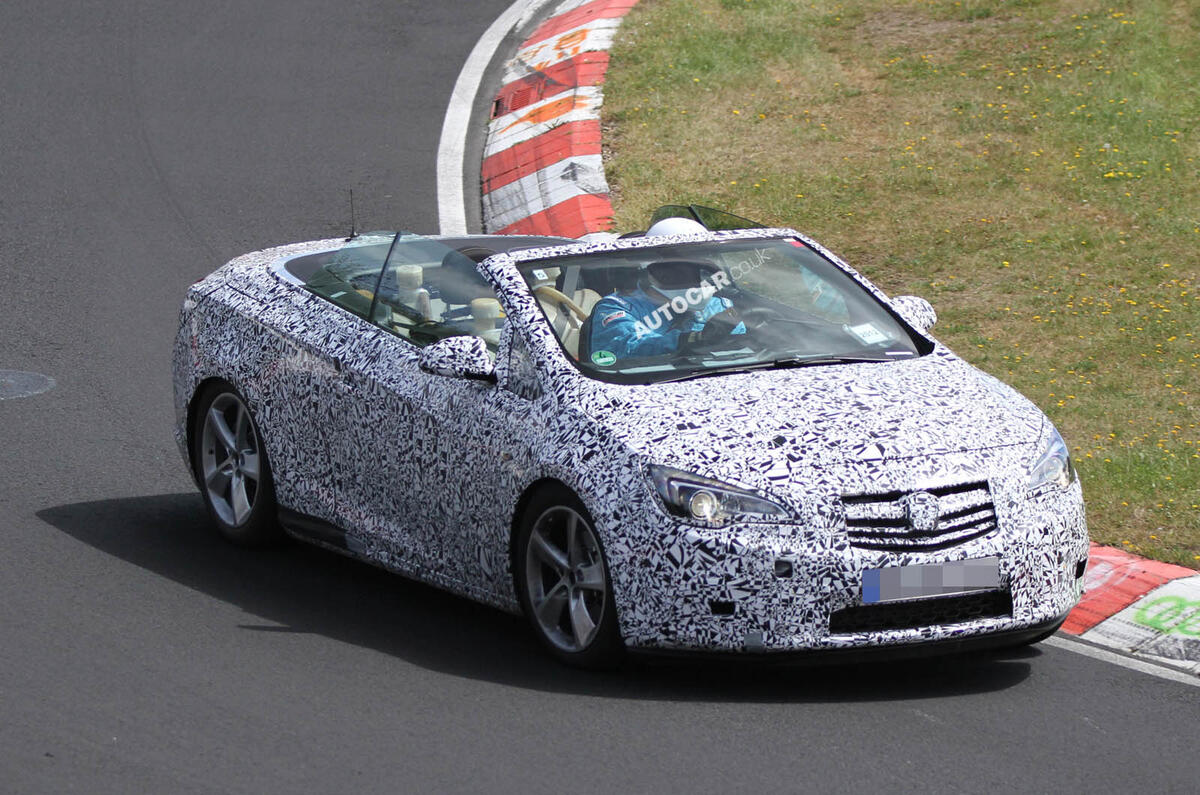Vauxhall has revealed a new turbocharged 1.6-litre four-cylinder petrol engine that will offered across its line-up, starting with the soon-to-be-revealed Astra-based Cascada convertible, from early 2013.
The aluminium block unit, the first in a range of so-called SIDI (spark ignition direct injection) Ecotec engines that form the centrepiece of the company’s downsizing strategy, is claimed to boast vastly improved torque characteristics and a significant reduction in consumption over the engine it replaces.
In standard trim, known as Eco Turbo, the 1.6-litre engine kicks out a claimed 168bhp and 206lb ft of torque – some 54bhp and 92lb ft more than the version of Vauxhall’s existing 1.6-litre engine offered in the Vauxhall Astra.
In a higher state of tune, in which it gains the working title Performance Turbo, the new engine’s reserves rise to 197bhp and 211lb ft, an increase of 20bhp and 52lb ft on the more powerful of the Astra’s 1.6-litre units.
Despite claiming fuel savings of up to 13 per cent, Vauxhall is yet to announce specific details to its new engine on a model for model basis.




Join the debate
Add your comment
Anyone fancy one?
Buying in 2023, six owners and 120k miles later? £5 says no one here would!
Yes please
I'd buy a near 200 hp 10 year old Astra, see loads of existing 10 year old Astra up and down the motorway. Now where's my £5
I agree
they only way your going to find out whether the engines succeeded in delivering what was originally invisaged, is by driving it over a range of different situations. Bench and Circuit testing is fine, but like the fuel consumption figures that they yield, there is, and always will be a huge variance. The problem with Turbo's, and these applies to all manufacterers not just Vauxhall is where to pitch the Curve, ie, at what RPM you want if to start, peak and plateau. It's very difficult to get one single unit that capitalises on the entire power band, hence manufacterers selecting twin/sequential and even three/four scroll turbos to provide optimisation of a wider curve. And, quite often in lieu of greater coverage, it's left to modified gearing to pick up the slack during this curve. I would suggest supercharging, but even that has it's problems and is very expensive to construct particularly in more volume oriented cars. Whilst Vauxhalls engines are good, the games moved on, so any move which involves the use of greater research and development has to be good. In the past, Vauxhall have produced a few cars which have taken the sector, within there own competitor group by storm, and hopefully this will be a step in the right direction. Vauxhall wiil never be (IMHO) a VW successor, moreso because of the alliance with OPEL, and lack of a premium, premium parent mentoring from outset, however it does have the ability to shine within it's own territory, and the british market is an important one at that.
Lag
Lag is still the biggest problem with these small capacity engines as Artill suggests but until the technology behind the electrically assisted turbo catches up, I fear that we will have to suffer.
I remember the days when Vauxhall engines used to be top of their class (late 80's) but sadly, on paper at least, this engine appears to do no more or no less than it's competitors.